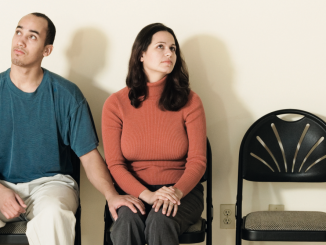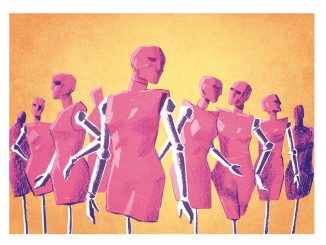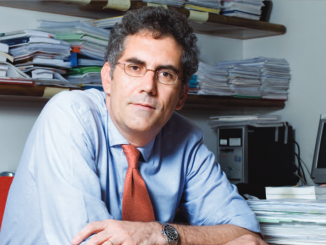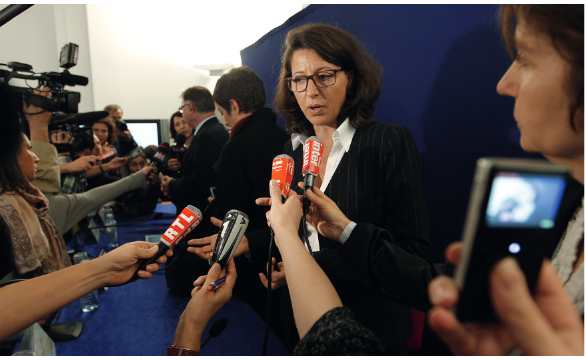
France’s relatively low profile on the European cancer stage belies a creative and innovative approach to research and care that other countries could learn from. Agnès Buzyn lifts the lid on how French cancer services continue to earn their ranking among the best in the world.
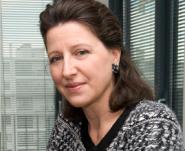 On the first day of her job as president and chief executive of INCa (Institut National du Cancer – France’s cancer institute), Agnès Buzyn had to field calls from journalists keen to get comment on a new report that raised the risk level of cancer from using mobile phones. “That took me by surprise, as I had not yet seen the report,” she says. It was a taste of the wide ranging issues she would have to deal with as the head of a national institute dedicated to both care and research – anything related to cancer, including public concerns about risks that are often wildly out of step with reality.
On the first day of her job as president and chief executive of INCa (Institut National du Cancer – France’s cancer institute), Agnès Buzyn had to field calls from journalists keen to get comment on a new report that raised the risk level of cancer from using mobile phones. “That took me by surprise, as I had not yet seen the report,” she says. It was a taste of the wide ranging issues she would have to deal with as the head of a national institute dedicated to both care and research – anything related to cancer, including public concerns about risks that are often wildly out of step with reality.
In its mainstream work, INCa has direct responsibility for commissioning and organising research, says Buzyn, which puts it in the same camp as other national agencies such as the NCI in the US. “But the NCI does not deal with organising cancer care – I think we are the only large state cancer agency in the world that has not only research but also care and prevention in its remit,” she says. “While other countries have a division between research and care, France has been a leader in saying that they have to be very closely linked.”
France has for some time delivered some of the best five-year survival rates in the world, ranking in the top five alongside Australia, Canada, Japan and the US. Though an achievement in itself, it is the progress made in building on this success, since the formation of INCa and a national cancer strategy, that Buzyn wants to emphasise. Key initiatives include rapid implementation of genomic mutation testing for personalising treatment, the establishment of seven regional research networks (called cancéropôles, which are now certified by INCa), and the imposition of quality standards, which has led to fairly brutal cuts in the number of clinics allowed to treat cancer patients (more than half have gone). The target of all patients being seen by multidisciplinary teams is now met in more than 90% of clinics.
Personalisation is a key theme where France appears quietly to be taking a lead in Europe. “We were able to quickly convince our ministry of health that detecting patients with mutations could save a lot of money by avoiding inefficient treatments, which is why most patients are now tested in France, and we are also now moving on to wider molecular sequencing,” says Buzyn. Coupled with a focus on key populations where networking and multidisciplinary working are especially needed – such as older people, teenagers and young people, high-risk patients and those with rare cancers such as sarcomas – the ‘landscape’ of cancer care in France has perhaps changed more rapidly in recent years than in most countries, and INCa has been instrumental in this.
That said, Buzyn stresses that there are formidable obstacles stemming from inequalities, including in access to high-quality healthcare. “The ministry of health is in charge of our national cancer plan and we are able to pilot only half of the plan’s measures ourselves,” she says. “When we are in charge of our half, it works well, but it gets much more complicated where there are wider social aspects beyond our power, such as insurance for people recovering from cancer, whether people can return to work or not, and changing systems for reimbursement of treatment, such as arranging for radiotherapists to be paid the same where we have shown that fewer doses are just as effective.
“We are a coordination agency and have to work with many different stakeholders, from charities to professional societies to other government agencies. We have the power to bring everyone to the table, but finding solutions often takes time and a lot of patience.”
She is candid about the main failure she sees so far: that of addressing inequalities. “It’s in our plan but it’s been a disaster – the only part we have had success with is in early detection in breast cancer, where we have done a lot of work with isolated women such as those who don’t speak French. Here we have produced materials in various languages and worked with associations in city suburbs to explain about screening – but it’s the only field where we have substantially reduced inequalities so far. Although France has good overall figures, they do mask a lot of inequality, especially in areas such as the north of the country.”
Buzyn took the job at INCa in June 2011 as the third head of the agency, and its first woman president. The institute was established in 2004 after the publication of the first French cancer plan, one of the legacies of President Jacques Chirac. She arrived midway through a second plan, due to end this year, which was funded at more than €730 million. “Last December at our annual cancer congress President François Hollande announced that we will have a third plan starting in 2014,” says Buzyn, “although it is likely to receive less funding. But all our stakeholders were glad to hear about the third plan, as we need to keep on setting objectives to bring everyone to the table – I told the President that we needed another plan to go further.”
Hollande also addressed inequalities at the announcement. “The cancer plan is a plan to fight against inequality,” he said, noting that the risk of dying from cancer among 30- to 65-year-olds is twice as high for workers than professionals.
Setting five-year plans and sticking to comprehensive reviews and reshaping of objectives regardless of party political lines – especially now in a time of austerity – also sets French cancer planning apart from most others. While most countries recognise cancer as a priority, it is more usual for national plans to lack the deadlines and renewal that France now enjoys. To be fair, however, Buzyn says that the early years of INCa were very much those of an organisation feeling its way forward, and it is only recently that its achievements are starting to reach a wider audience internationally. And as she comments, “Other health professionals in France outside of cancer have questioned the special status of INCa – but of course I agree that cancer is different.”
Buzyn has a background in cancer. Her pathway into medicine was set in train when she worked alongside her father, an orthopaedic surgeon, in her school holidays – handing him instruments during operations. “It was natural for me to go to medical school and I thought I would be a surgeon too, but it’s not an option well suited to a busy family life, so I looked for a specialty in a hospital, as I didn’t want to go into private practice.
“I wanted to deal with a ‘real’ disease and chose leukaemia partly because when I was five my best friend disappeared from school and the teachers told me she had died from leukaemia. I found a strong woman mentor in Eliane Gluckman, who started bone marrow transplants here and was the only woman chief of department in France, and went on to specialise in haematology and transplants – but I’m not an oncologist and only really found out a lot more about solid tumours when I came to INCa.”
Most of her clinical career has been at Necker hospital in Paris, where she still has one morning clinic a week to keep contact with patients. Though known as a paediatric centre, it also has adult departments, and Buzyn decided to work only with adults and teenagers. “During my residency, when I worked with Eliane Gluckman, a child died in my arms – I was eight months pregnant with my first baby and I just found it too hard to work with children.”
A milestone in bone marrow transplants during her time, she says, has been a huge expansion in the donor population. “When I started we only had about a million – now we have 15 million from many countries. Another big advance has been that we can perform transplants with incompatible donors – now almost all patients can have one.”
Buzyn has also pursued a research career in leukaemias and immunotherapy at institutes in Paris. Given the advances in immunotherapy that are finally coming to fruition, she has some regrets about leaving the field. “I was specialising in chronic myeloid leukaemia (CML), and when Glivec came along people told me immunotherapy wasn’t interesting anymore. But I’m sure now it will be part of the mix of therapies we need to treat cancer,” she says. In other research work she has helped to show how patients with certain mutated acute lymphoblastic leukaemias (ALL) do not need bone marrow transplants.
In the clinic, a big issue she only now has the power to address is the needs of teenagers and young adults with cancer. “It is a special population group, as the diseases are very different and the young people are sometimes very mature but often angry – it takes a lot of time and energy to take care of them. I had a lot of young people referred to my department, and 15 years ago I wanted to open a special unit for them – but I wasn’t able to. Now at INCa we are finally making plans for such units.”
Although France is not seen as a rigidly patriarchal society, Buzyn says that, in academic medicine especially, there was and still is some reluctance among men to see women in senior positions – something she encountered when she was appointed professor of clinical haematology at Paris Descartes university. “It’s still hard for women to have an academic career – men just don’t see women as taking their place even if you have all the diplomas and research papers and are equivalent to them. I had lots of jealousy from colleagues at the hospital after my appointment as a professor. There are many women working in labs and in specialties such as pathology and geriatrics – but there is resistance to us becoming heads in what are seen as major disciplines such as haematology. Other women colleagues and I even thought of setting up a pressure group to highlight this issue.”
To its credit, it was the right-wing Sarkozy government that wanted a woman as the third head of INCa after the then chief executive was asked to manage a new drug agency. Buzyn came to the fore because she had also participated in a number of French agencies, and was in any case on INCa’s executive council at this point. “I was first involved in a number of scientific councils such as at the French blood agency. I like being involved in society as a citizen, and I also like politics – it means you have a chance to change things. But I didn’t think I could be involved at a higher level.”
The appointment that brought her national attention was to the board of the French radiological protection agency. “This was my first real administrative experience and I enjoyed it very much. As a scientist I brought input from the research and university sector. But I then had to deal with the Fukushima crisis, which was very big in France.” Previously, she says, the meltdown at Chernobyl had caused a scandal in France after the public were advised that there was no fallout over the country. “That was not true and people got thyroid cancer after eating wild produce. So when Japan’s Fukushima crisis happened – and with our own background with nearly 60 nuclear power plants – it was a big concern here, although this time there was no danger.
“With the media going crazy I had to go on TV almost every day and explain what was going on, and say there was no need for people to buy iodine pills. I’m a leukaemia specialist so that was part of the reassurance, as I was not seen as part of the nuclear lobby. I didn’t want to do it, but I realised that the journalists wanted to hear from me.” They still want to hear from her now she is at INCa – and possible leukaemia associations with power plants are another ongoing and controversial issue.
When she was a full-time clinician, the cancer plan did not concern her much, she says. “But the one thing that was really interesting was that any patient with cancer had to be discussed first in a multidisciplinary team – no oncologist in France is allowed to see patients on their own in private practice. That is real progress for quality of care and security for patients, and for me one of the main achievements of the first plan.”
That plan, she adds, was also about structuring oncology from a fairly uncoordinated state. “It was decided to organise research and care networks in the regions and accredited centres to take care of patients – we fixed the minimum numbers of patients a year to maintain quality.” That led to a dramatic reduction in the number of clinics treating various cancers. “Ten years ago there were more than 2000 establishments – now there about 800,” says Buzyn. It is a sobering thought, she adds, that more than 1000 places have been deemed not qualified to work with certain cancer patients.
Overall, the first plan had 70 ambitious areas in six main themes to cover, but it lacked rigorous indicators to monitor progress, says Buzyn. This has now evolved into five areas, 30 measures and no fewer than 118 actions – including ‘flagships’ with specific targets (see panel). Buzyn mentions research as an area where they achieved particular success. “We’ve put a lot of energy into developing phase I and II clinical studies, and have increased by 70% the number of patients in trials. That is much more than the plan objective of 50%,” she says, noting that these trials have a focus on vulnerable populations such as children, older people and those with rare and the most serious cancers.
Another success has been the accreditation of eight multidisciplinary research centres under the SIRIC banner (sites de recherche intégrée sur le cancer), including the Institut Gustave Roussy (IGR) and the Curie, both in Paris. “Our ambition is to organise translational research in hospitals integrated with care and prevention,” she says.
Molecular profiling of tumours for personalising therapy is now being done in 28 regional centres, notes Buzyn, and is at the heart of a wide number of initiatives. “We have started a programme for phase II trials for targeted therapies that are just approved or about to be approved – we want to open trials to patients who have a mutation such as BRAF in cancers other than melanoma, for which vemurafenib is approved. We will see whether drugs are effective in other indications, and if so, we will ask the industry to open an official trial. Many oncologists want to see this, because it will help them avoid giving off-label drugs without knowledge of their effectiveness and side-effects.” The project is called AcSé (for secured access to drugs) and is run at INCa’s CLIP2 (accredited early-phase clinical) centres. The institute is proposing it as a possible European model for public– private partnership.
Meanwhile, the testing network for mutations in common cancers has ramped up to cover most patients, identifying key markers such as KRAS in colorectal cancer and EGFR in lung tumours, as well as possible new targets. Buzyn reports that €69 million has been saved at a cost of only €1.7 million by ensuring, for instance, that lung cancer patients without mutated EGFR are not treated with gefitinib.
Having reference centres for pathology is also driving a mandatory second opinion system for rare cancers such as sarcomas, where at least 15% of diagnoses are changed when reviewed (France is one of the few countries with a mandatory review – see also When in Doubt, Ask an Expert, page 30). This process also admits patients into clinical networks of specialists in rare disease. There are currently 17 such networks, which include rare cancer types as well as rare events such as cancer in pregnancy.
This in turn is feeding research, by building up tumour banks and registries, and trial participation. “For example, we participated in a multinational chondrosarcoma trial run from the US and we were the first country to finish our inclusions, identifying 45 patients in less than a year, who were detected through our network. Most other countries do not have this level of organisation. We know almost every patient with, say, a chondrosarcoma in France.” For more on initiatives in molecular pathology, see Testing the Testers (Cancer World November– December 2012) and also the key paper led by INCa on the French tumour profiling programme (Nat Rev Clin Oncol 2012, 9:479–486).
INCa also helps fund large-scale academic research, such as the PHARE trial that aimed to find whether 6 months of Herceptin is as effective as 12 months for adjuvant therapy in breast cancer. The trial enrolled some 3380 patients across more than 150 centres in France.
Another pilot from INCa focuses on supporting patients by providing them with a personalised therapeutic ‘project’ and post-cancer personalised project, to give them a proper explanation of their treatment plans, identify what supportive and social needs they have and prepare the ground for life in the community after treatment ends. “It will be part of our third plan to put more emphasis on ambulatory care in the community, involving GPs and perhaps creating a new type of profession such as coordinating nurse,” says Buzyn.
An overall aim of the third plan, she adds, is to speed up innovation for patients. Though France has a good record of introducing drugs early – as they did, for instance, with Herceptin – Buzyn considers the overall pace of innovation to be too slow, noting again that areas less in INCa’s influence can hold things up. A higher proportion of radiotherapists than medical oncologists work in private practice in France, for example, and not only are they likely to be slower to make changes, they are also less well represented in wider research networks (France is one of the membership ‘black holes’ for ESTRO, the European radiotherapists’ society).
Radiotherapy has received more attention, however, since a major scandal about overdoses given to more than 5000 prostate cancer patients in Epinal, north-east France. Three professionals received prison sentences this year for their part in this.
Other disciplines allied to oncology, such as interventional radiology, also need to be integrated much more into strategy, says Buzyn, and new avenues with truly ‘outside’ professionals, such as mathematicians, physicists and engineers, need to be explored – a call for proposals from these disciplines has been made by INCa and several have been funded.
To help break down barriers, Buzyn has reorganised INCa’s 150 staff into two main directorates – public health and organisation of care, and research and innovation. “The idea is to encourage translational actions and fewer ‘vertical’ actions,” she says.
Although public health messaging is handled by another agency, INCa does have a role to play in prevention messages on issues such as tobacco and risky behaviour, she says. “French people tend to think all things are equally risky – we need to do more to show them that about one-third of cancer risk is related to tobacco and alcohol, and not to pollution in cities, for example.” INCa is exploring whether to make research in areas such as behaviour change a priority for the next few years.
Regarding risk, Buzyn’s reassuring presence was called into play again recently during the PIP breast implant scandal, as not only were many cancer reconstruction patients affected, but there was alarm about a possible association with developing lymphoma (one woman did die of the disease). “We approached this as an expert group to show what the evidence was,” she says.
She places great store on INCa giving independent advice, noting that the experts it uses for recommendations must demonstrate they are not compromised by involvement with industry.
Internationally, Buzyn is keen to do more to talk about the French experience, recognising that there is not enough representation at present. “But French oncologists are well connected in research networks, and I gave a presentation at ESMO last year on our progress and plans in personalised care,” she says. There is, however, much more to tell about how the French model is doing across the entire patient journey, she feels.
INCa is a member of the European Partnership for Action Against Cancer (EPAAC) working group on cancer research, and recently hosted a meeting in Paris where Buzyn discussed possible pilot projects to better coordinate European research, such as a healthcare knowledge network, public–private partnerships in early-phase clinical trials, and prevention research. It is and has been active in various other EU projects; for example it was the coordinator of CoCanCPG (Coordination of Cancer Clinical Practice Guidelines in Europe), and is active now in programmes such as TRANSCAN (the network on translational cancer research). However, the very fact that she is not using English as much as when she was a researcher is an indicator of the need for more international work, Buzyn adds.
Two key people spring to mind in her life. One is her husband, Yves Levy, an HIV/AIDS specialist in charge of the French HIV vaccine programme. “We talk a lot about research and he helps me a lot,” she says. The other is Jean-Paul Vernant, a retired professor of haematology and well known to Buzyn – which is advantageous because he has been charged with drawing up the third cancer plan for 2014–2018.
Her appointment is for a five-year term and she is clear about her priority. “I really want to work more on quality of care for everyone, not just access to care, which is in the current plan, as it is unforgiveable if patients lose the best chances they have. I receive a lot of letters from patients and families and some are so sad, and I always answer them – but I want to be able to reassure them that they had the best care.”



